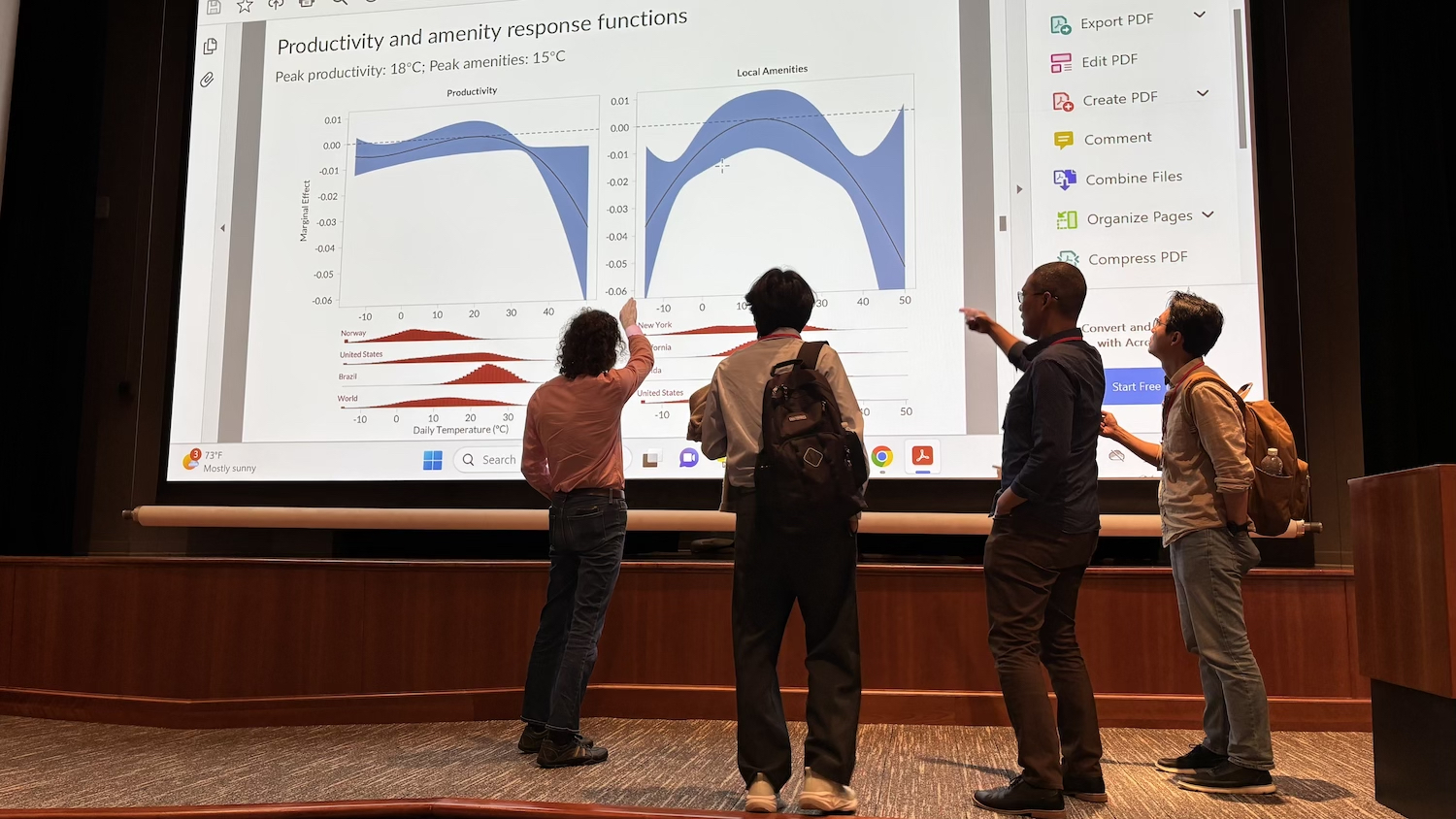The (Real) Weight of Words
Poole College's Daisoon Kim and Luca David Opromolla share new trade policy research presented at the Devils and Wolves International Economics Seminar Series.

The Devils and Wolves International Economics Seminar Series brings world-class research in international economics to the Triangle. These Poole Thought Leadership columns build on the research presented at the seminars to help entrepreneurs, policymakers and journalists better understand key current trends in the global economy.
In this column, Poole College’s Daisoon Kim, assistant professor of economics, and Luca David Opromolla, Owens Distinguished Professor of International Economics, share research presented at the March 22 seminar.
The current U.S. electoral phase is full of promises about what will happen to U.S. trade and industrial policy if either U.S. presidential candidate will be elected. The previous president promised “stiff penalties on China,” “aggressive new restrictions on Chinese ownership” of assets in the U.S., and a phased-in complete ban on imports of Chinese-made electronics, steel and pharmaceuticals. President Biden announced opposition to Japanese steelmaker Nippon Steel’s proposed acquisition of U.S. steel and signaled new tariffs to block cheap electric vehicles and other clean-energy imports from China.
The constant flow of trade news, like the recent U.S. policy shift, shapes our globalized economy. A captivating study by Professor George Alessandria (University of Rochester) and Carter Mix (Federal Reserve Board) highlights a fascinating aspect of this news cycle: its impact on the present economy, even though it focuses on future events.
Economists typically focus on unexpected events, but Alessandria and Mix highlight the unique case of trade deals, which unfold gradually from announcement to implementation. Imagine you hear about a cheaper phone coming out next month. You might spend more now on, say, a new case or screen protector, in anticipation of saving money on the phone itself later. This behavior, mirrored by consumers and businesses alike, is the crux of Alessandria and Mix’s research.
Using a dynamic model, they explore how news of impending tariff reductions influences individuals and businesses. Their findings reveal intriguing patterns: Consumers may boost current spending in anticipation of future prosperity, while businesses might postpone investments awaiting lower costs, yet intensify preparations for exporting. This cautious approach could precipitate a transient slowdown before the trade deal materializes.
Empirical evidence from past agreements corroborates these insights. Economies experienced a slight deceleration before the agreements came into effect, underscoring the profound impact of future economic forecasts on present-day dynamics, often defying conventional expectations.
In essence, Alessandria and Mix’s research underscores the paramount importance of accounting for future expectations when assessing the ramifications of trade deals. By furnishing economists with innovative analytical tools, it explains the intricate interplay between trade policy and economic trajectories over time. Understanding these anticipation effects allows policymakers to design trade deals with smoother economic transitions.


